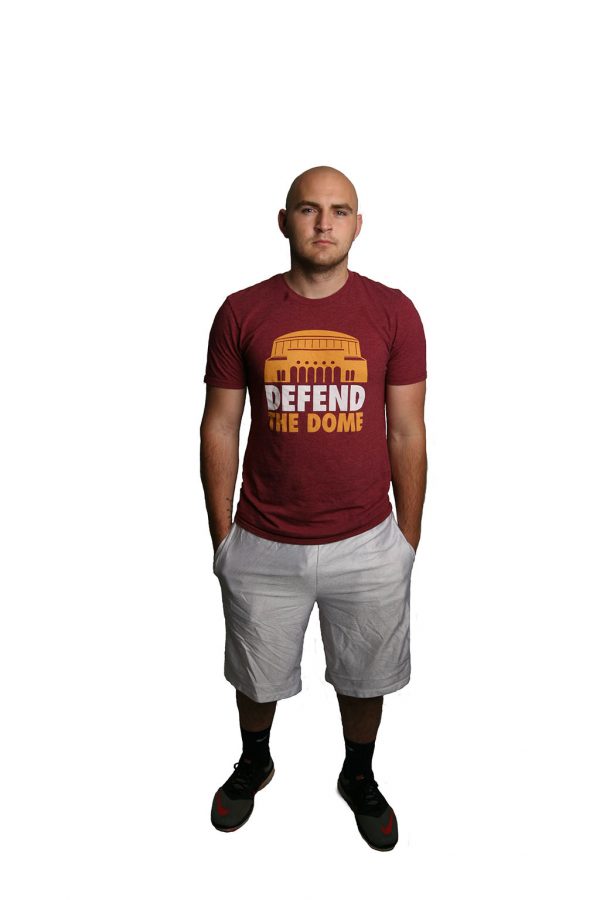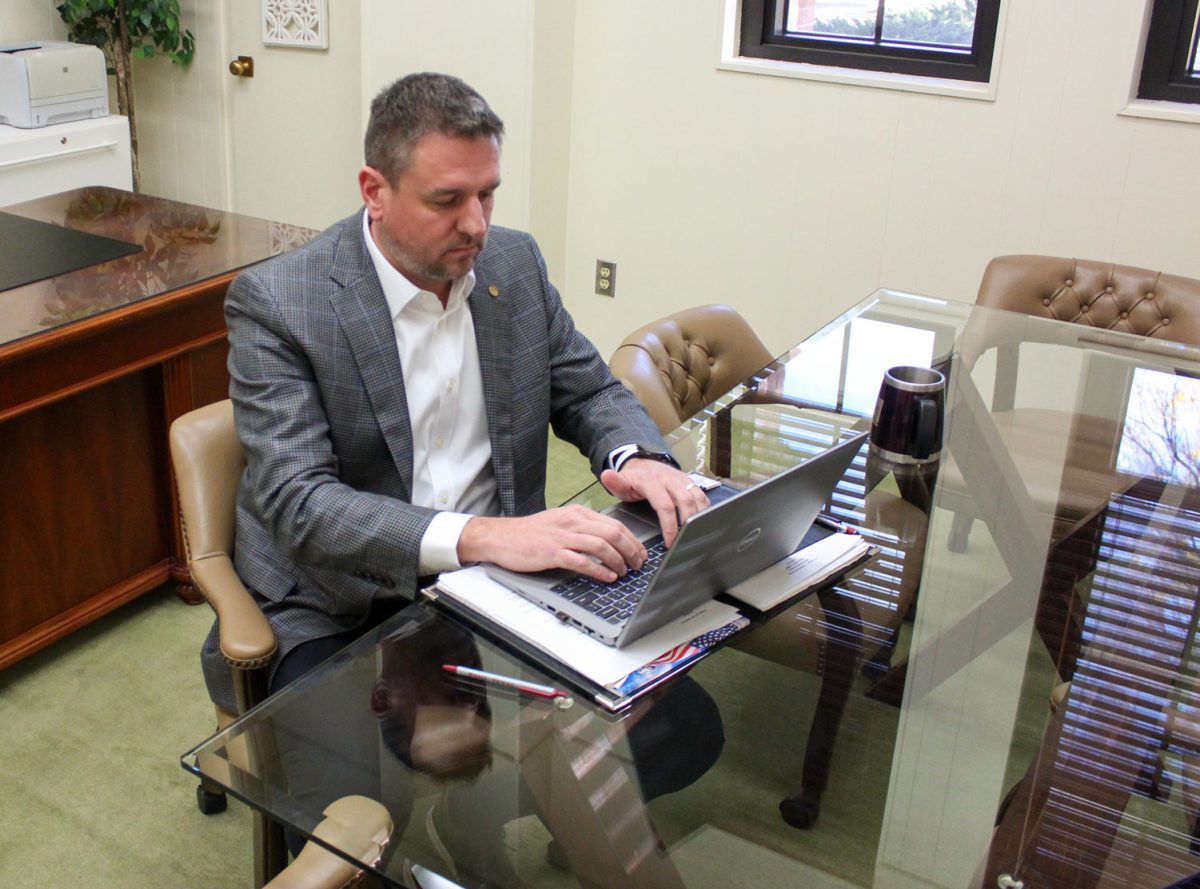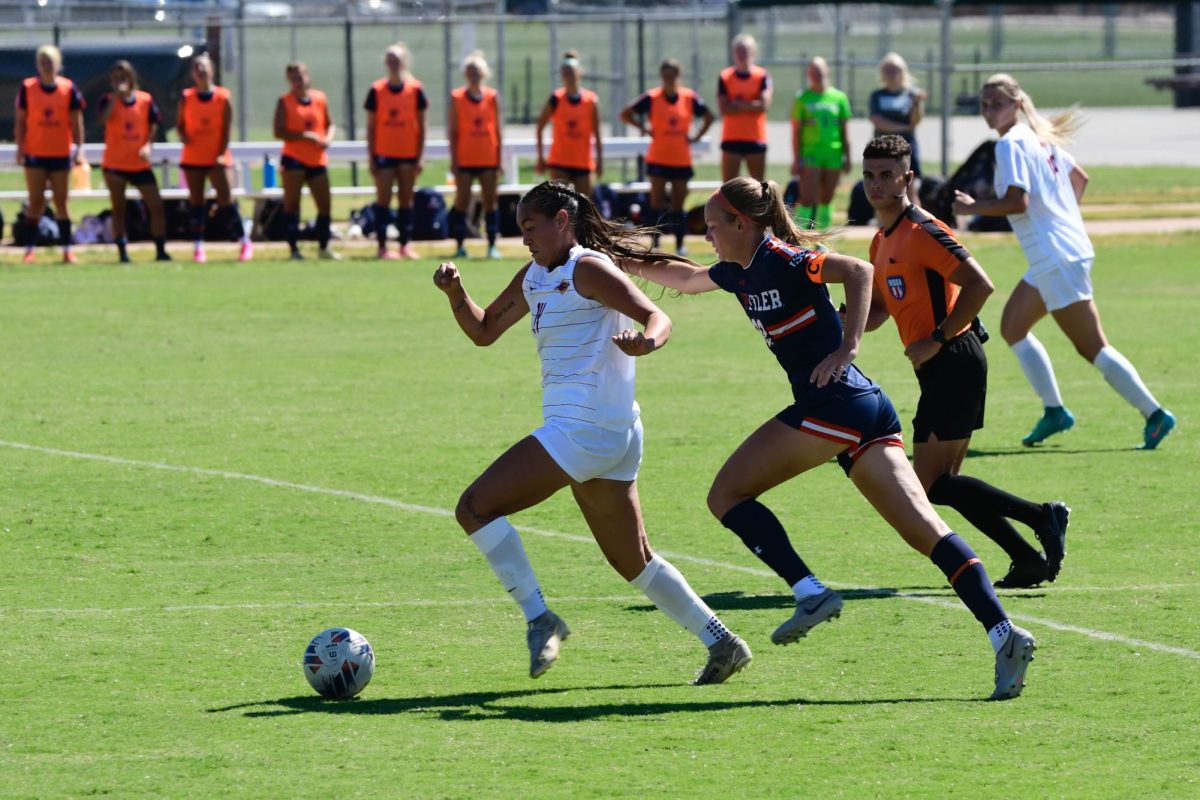Christopher “Topher” McGehee, mass communication sophomore, conducted a social experiment to get reactions for an essay he wrote for his academic research and writing class. McGehee posted a video on Facebook on Sept. 15 making claims that he was “coming out of the closet,” stating that he was gay.
The video has received 1,500 views on Facebook, along with 107 likes and 31 comments that primarily showed support for McGehee’s decision to come out. However, five days later on Sept. 20, McGehee posted a second video retracting his previous claims, and said that he was straight and it had all been for an essay he had to write over reactions. The second video has received 1,600 views on Facebook, along with 41 likes and 29 comments that were primarily negative.
“I’m a big person over controversy and awareness,” McGehee said. “I’m not homosexual, but I thought if I made this video I could see, one, what it’s like to be in [the LGBTQ community’s] shoes, and two, it gave me a higher awareness of what they have to go through. Plus I got to see people’s true selves.”
McGehee said he realizes the stereotypes that surround being a male cheerleader, and him joining the squad this year went on to further enhance his interest on choosing the topic of homosexuality for his essay.
“When I first joined cheerleading, [people stereotyping me] was a thought I had because one of the janitors at my church overheard me talking about cheerleading with one of my friends, and he asked, ‘So, you’re a fruit-loop?’” McGehee said. “That was wrong.”
MIXED REACTIONS
However, soon after posting the first video, McGehee said he received mixed reactions from people; people who he did not expect to support him supported him, while people he thought would support him did not.
“There were few negatives that I actually one-on-one had, but there was so much positive from people I didn’t expect to get any positive from,” McGehee said.
McGehee explained that he did not inform his parents of his experiment, nor did he tell them in a different way than he told everyone else (via Facebook), because he wanted to get accurate reactions.
“With the video, I had to put it up the way I did to get true reactions,” McGehee said. “My dad wouldn’t talk to me for that week. Every time I called, he hung up on me. He was going to block me from his life even though he once told me that he’d always love me. It baffles me.”
The video went on to collect thousands of views on Facebook, something McGehee said he did not anticipate.
“I did not expect to have that many views on Facebook,” McGehee said. “For it to blow up so fast, I thought that was a good thing because so many people saw it.”
THE EXPERIMENT
However, others disagreed. The second video McGehee posted brought in even more views and discussion about the ethics of conducting such an experiment.
“I’ve done experiments that are similar – not to the extremes of involving unconsenting participants – but I’ve done social experiments and I kind of understand the perspective of all of the others in this situation,” Apryl Webb, secretary of the office of undergraduate research, who has also studied sociology, said.
Webb went on to note that social experiments, when they involve people, need to be approved by the Institutional Review Board.
Webb said, “I don’t believe Topher followed those guidelines. My personal opinion about the experiment is that it should not have been done. I do not agree with it. I don’t agree with the methods.”
Additionally, some people, including Emily Stewart, radiology senior, took offense to the entire concept of conducting the social experiment because they said it was degrading to the LGBTQ community.
“The video was offensive to me because I feel like he tried to understand a small aspect of what the gay community goes through instead of understanding what they go through in their everyday lives, throughout the course of their entire lives,” Stewart said. “He doesn’t understand what it’s truly like to be gay, and I think what he did is offensive to people who have to go through that experience; the discrimination. Topher’s actions were unintentional, but they were wrong.”
Webb also spoke on why she found it offensive.
“Gay people who might be offended think that he’s devaluing a genuine part of a gay experience,” Webb said.
Frank Cruz, marketing senior, said he felt very passionate about McGehee’s actions.
“When it comes to coming out, it’s a very touchy subject,” Cruz said. “Just saying ‘oh, I’m gay,’ doesn’t mean you’re in [the LGBTQ community’s] shoes.”
Cruz said he believes McGehee could have gone about conducting the experiment in a different way.
“The way the experiment was went about was more of a slap in the face; that’s the message it’s sending. It belittles coming out,” Cruz said. “People have killed themselves because of it, people have run away from home. He will never truly understand what it’s like to be gay. He has no idea how much he’s hurt the LGBTQ community.”
However, not everyone sees McGehee’s actions as offensive.
“I don’t think that he meant to be offensive, but I think that he inadvertently shed light on something that is important to a lot of people,” Georgia DuBose, cell biology junior, said.
McGehee said he believes people misinterpreted his intentions for doing the experiment.
“I went about [the experiment] to help out the LGBTQ community. I didn’t make a mockery out of it,” McGehee said. “My hope was to get a better understanding of another culture.”
McGehee said that he just wants people to respect his decision to conduct the experiment.
“For others, I hope they learn from this experiment that they need to respect each other’s differences, and to learn from one another, rather than bash and hate on each other,” McGehee said. “So the people that want to scold me, it won’t change my opinion of who they are. I’m a very likable person in general.”
Additionally, McGehee said that he has a plan on how problems could be fixed.
“I could’ve chosen any topic. I chose homosexuality because I think that’s a big situation and issue that still needs to be talked about. We have basic human rights being taken away. We have an ongoing list of things that we could fix if we just talked about it,” McGehee said.
CLASS ASSIGNMENT
All opinions of the social experiment’s ethical validity aside, there was also some confusion surrounding the experiment. John Schultze, assistant professor of English, assigned the essay to McGehee and his class, yet he said that he was unsure of why McGehee conducted the experiment at all.
“The assignment was an advertisement analysis, so I’m not certain how his social experiment ties into the assignment that I gave because he was supposed to pick a magazine advertisement and analyze it, break it down, and explain how it’s a persuasive piece of discourse,” Schultze said. “I’m interested to see how he ties in his experiment to the assignment. I’m not sure which advertisement he has selected, but maybe that will have something to do with it, but at this point I’m fairly uncertain.”
After reviewing the assignment, McGehee retracted his original statement about the instructions for the essay, and said he used the video he posted as a video advertisement, just on a broader spectrum.













